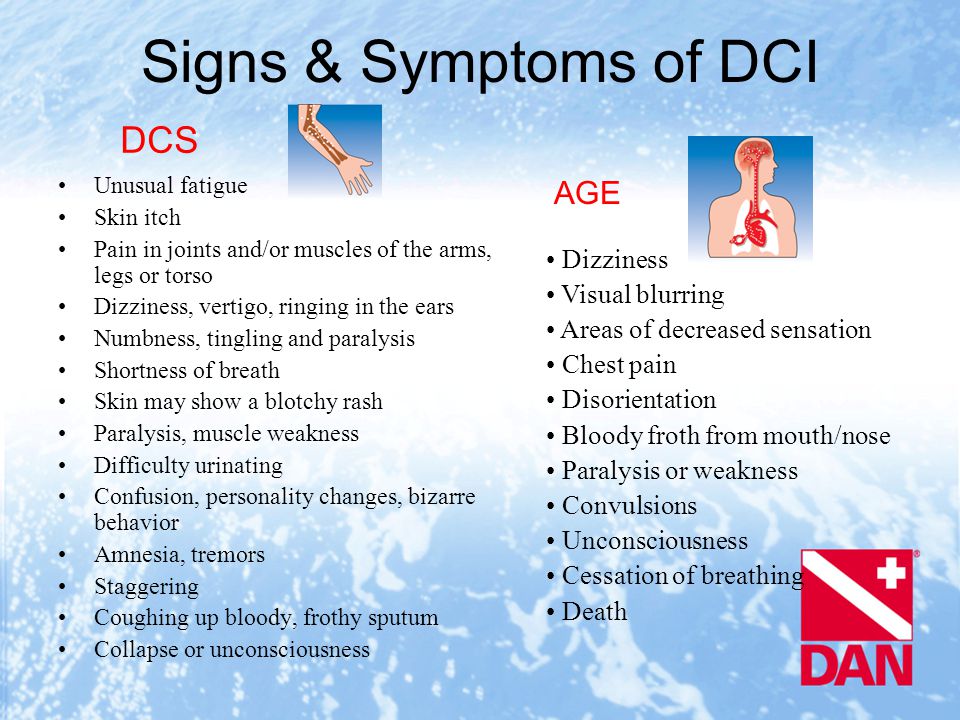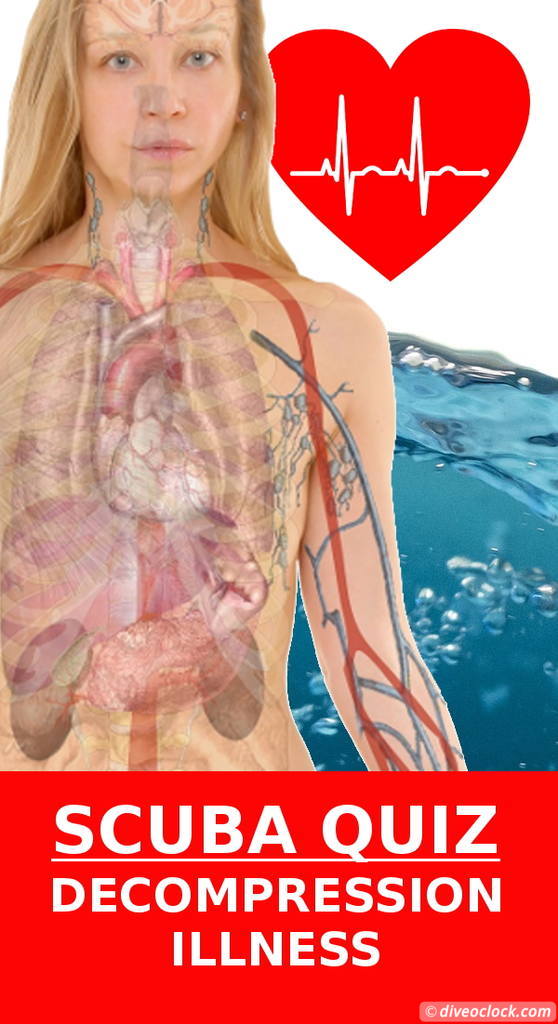SCUBA QUIZ: What is Decompression Illness?
One of the risks involved with diving under pressure is decompression illness. There are two diseases related to decompression illness: Decompression sickness and arterial gas embolism. Can you separate the two in this quiz?
This information comes from Divers Alert Network (DAN)
Decompression illness, or DCI, is a term used to describe illness that results from a reduction in the ambient pressure surrounding a body. A good example is what happens to your body when you're surfacing after a dive.
Decompression sickness (DCS)
Decompression sickness (also called the bends or caisson disease) is thought to result from bubbles growing in tissue and causing local damage. During a dive, the body tissues absorb nitrogen from the breathing gas in proportion to the surrounding pressure. If the pressure is reduced too quickly, however, the nitrogen comes out of solution and forms bubbles in the tissues and bloodstream. This commonly occurs as a result of violating or approaching too closely the diving table limits, but it can also occur even when accepted guidelines have been followed.
Arterial gas embolism (AGE)
Arterial gas embolism results from bubbles entering the lung circulation, traveling through the arteries and causing tissue damage at a distance by blocking blood flow at the small vessel level. If a diver surfaces without exhaling, air trapped in the lungs expands with ascent and may rupture lung tissue - called pulmonary barotrauma - which releases gas bubbles into the arterial circulation. Rapid ascents are closely linked to the risk of arterial gas embolism.
Signs and symptoms of decompression illness
Since decompression illness is a random event, almost any dive profile can result in decompression illness, no matter how safe it seems. Because of this, evaluation of a diver for possible decompression illness must be made on a case-by-case basis by evaluating the diver's signs and symptoms and not just based on the dive profile.Are these signs and symptoms related to DCS or AGE?
Answer
- Visual blurring = Arterial gas embolism (AGE)
- Skin itch = Decompression sickness (DCS)
- Areas of decreased sensation = Arterial gas embolism (AGE)
- Convulsions = Arterial gas embolism (AGE)
- Chest pain = Arterial gas embolism (AGE)
- Shortness of breath = Decompression sickness (DCS)
- Unusual fatigue = Decompression sickness (DCS)
- Death = Arterial gas embolism (AGE)
- Confusion, personality changes, bizarre behavior = Decompression sickness (DCS)
- Pain in joints and / or muscles of the arms, legs or torso = Decompression sickness (DCS)


The treatment for decompression illness is recompression. However, the early management of air embolism and decompression sickness is the same. Although a diver with severe DCS or an air embolism requires urgent recompression for definitive treatment, it is essential that he be stabilized at the nearest medical facility before transportation to a chamber.
Early oxygen first aid is important and may reduce symptoms substantially, but this should not change the treatment plan. Symptoms of air embolism and serious decompression sickness often clear after initial oxygen breathing, but they may reappear later. Because of this, always contact DAN or a dive physician in cases of suspected decompression illness - even if the symptoms and signs appear to have resolved.
Visit the website of DAN for more information.How many did you got right? Comment below!
Founder of Dive O'Clock "It's dive o'clock somewhere!"


Continue reading
Share this page:














